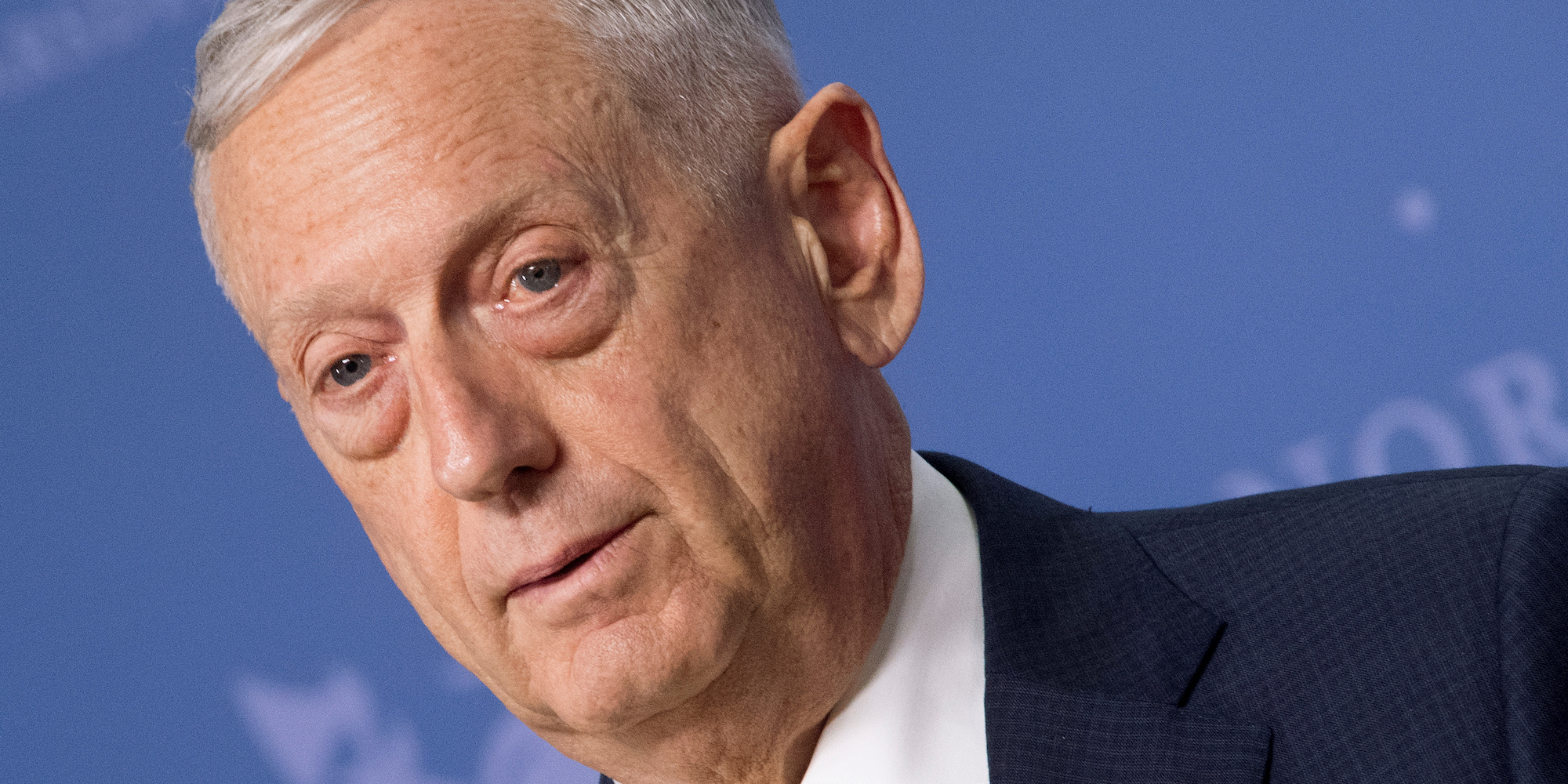- Defense Secretary James Mattis on Friday said the return of remains believed to be of US soldiers killed in the Korean War by North Korea was a “humanitarian act.”
- 55 sets of remains were transferred on Thursday to Osan Air Base in South Korea, from which they will then be transferred to a lab in Hawaii to be identified.
- For years, the US has sought to locate and repatriate their remains, but political tensions between the US and North Korea have often made that extremely difficult.
- It’s estimated that roughly 7,700 US soldiers did not return home when the Korean War ended via an armistice in 1953, according to the Department of Defense.
Defense Secretary James Mattis on Friday said the return of remains believed to be of US soldiers killed in the Korean War by North Korea was a “humanitarian act.”
“This humanitarian act is a step in the right direction,” Mattis told reporters.
Fifty-five sets of remains were transferred on Thursday to Osan Air Base in South Korea, from which they will then be transferred to a lab in Hawaii to be identified. Officials have been careful to note that these are possible remains of US soldiers and that further analysis is necessary in order to confirm their identities.
Thousands of soldiers from the US air base and their families are lining the route to welcome the fallen soldiers home. Over 5000 US soldiers remain unaccounted for in North Korea after the war. The remains will be tested to check they are Americans. pic.twitter.com/SskSWIHKxO
— Laura Bicker (@BBCLBicker) July 27, 2018
It's estimated that roughly 7,700 US soldiers did not return home when the Korean War ended via an armistice in 1953, according to the Department of Defense, and the remains of 5,300 are believed to still be in North Korea.
The Geneva Convention calls for parties to a conflict to work toward returning the remains and personal possessions of the dead "upon request of the party to which they belong or upon the request of their next of kin." For years, the US has sought to locate and repatriate their remains, but political tensions between the US and North Korea have often made that extremely difficult.
There has been some success from these efforts, and roughly 340 remains have been repatriated since 1990.
Meanwhile, keenly aware of the Pentagon's desire to have these remains repatriated, North Korea has often attempted to use the topic as a bargaining chip in negotiations with the US, including during President Donald Trump's meeting with North Korean leader Kim Jong Un in Singapore in June.
At the Singapore summit, Trump and Kim signed an agreement regarding the denuclearization of North Korea that included a pledge to repatriate the remains of dead US soldiers. Since that time, it was unclear if the North would keep its word, especially after a rocky visit from Secretary of State Mike Pompeo.
But the repatriation of the 55 sets of remains this week marks a step forward in this process, which Trump celebrated via Twitter on Thursday.
The president tweeted, "The Remains of American Servicemen will soon be leaving North Korea and heading to the United States! After so many years, this will be a great moment for so many families. Thank you to Kim Jong Un."
Trump has faced criticism over the agreement he signed with Kim, which many feel is too vaguely worded and offers North Korea a significant amount of wiggle room in terms of the denuclearization process.

